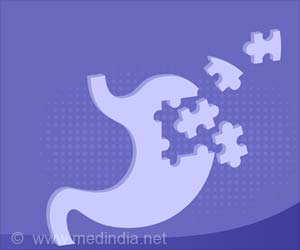- Women with long-standing mental problems can have an impaired immune system
- The blood work of women with postpartum depression and anxiety reveals a difference in the levels of immunological cells when compared to women with no mental health issues //
- There is a genetic difference in the response to inflammation, which is impacted by the mental health of the patient
Mental health and immunity (Review)
Go to source).
"We found that women who had clinically elevated symptoms of depression, anxiety, and/or post-traumatic stress disorder (PTSD) two to three years after delivery had genetic evidence of a higher prevalence of immune system defense mechanism activation," said Eynav Accortt, PhD, principal investigator of the study and director of the Reproductive Psychology Program at Cedars-Sinai.
"These women also appeared to have a reduction in the activity of genes related to antiviral immune responses that can offer the body protection from pathogens," said Accortt, a clinical psychologist.
As per the reports of the Centers for Disease Control and Prevention, approximately one in every eight women has substantial symptoms of perinatal mood and anxiety disorders, which can interfere with general health, everyday activities, and family life. To date, the majority of research into maternal mental well-being has concentrated on the postpartum period and the first year following childbirth.
"Delayed or persistent postpartum anxiety, depression, and PTSD are areas that are woefully understudied," said Sarah Kilpatrick, MD, PhD, chair of the Department of Obstetrics and Gynecology at Cedars-Sinai and one of the study’s co-authors.
According to Accortt, one of the key goals of this research is to develop a blood test that can identify which women are at high risk for adverse health and protracted postpartum mental disorders.
In recent research, the researchers decoded that thousands of individual B-cell transcripts that are responsible for coding sequences of protein synthesis were found in women with postpartum depression but were not detected in women without PPD. These discrepancies have been linked to DNA variations and genetic control and can directly have a negative impact on the mental well-being of the mother (2✔ ✔Trusted Source
Transcriptome-wide association study for postpartum depression implicates altered B-cell activation and insulin resistance
Go to source).
Pathway analysis, a fourth genetic tool that links coding sequences to putative physiological pathways with which the resultant proteins interact, similarly revealed differences in B-cell activity between those with and without PPD. At this point, it's unclear what's causing the differences or how they might affect the illness.
Another study found that happy emotions caused a spike in secretory immunoglobulin A and a drop in salivary cortisol. The processes by which positive vs negative moods manifest in the brain and interact with the immune system are still unknown (3✔ ✔Trusted Source
The immune system and happiness
Go to source).
The Double Arrow Connection Between Mental Health and the Immune System
An unbalanced immune system has long been linked to a number of mood disorders such as anxiety, obsessive-compulsive disorder, and depression.Patients who are using immune-suppressing medicines or who have a weakness in their immunological response are more likely to have mood swings and behavioral problems.
The exact mechanism of this link has been explained in this latest study that demonstrated T-lymphocytes, one type of immune cell prevalent in our blood, play a crucial role in regulating the emotional reaction in experimental animals. The study also sheds light on a newly discovered variant of lymphocyte, which is immunologically a subtype of T lymphocyte, that has the potential to change the way the brain operates (4✔ ✔Trusted Source
Mood configurations and their relationship to immune system responses: Exploring the relationship between moods, immune system responses, thyroid hormones, and social support
Go to source).
With this study, it can be concluded that investigations in psychoneuroimmunology have shown that thoughts and emotional patterns, as well as psychological dynamics, are significantly associated with an immunological response. Furthermore, immunological mechanisms not only govern a person's health, but they also play a vital role in the individual's adaptation process to the environment.
It is also clear that the postpartum period is a time associated with high rates of depression and anxiety, as well as a greater risk for psychosis in some women.
References:
- Mental health and immunity (Review) - (https://pubmed.ncbi.nlm.nih.gov/33149775/)
- Transcriptome-wide association study for postpartum depression implicates altered B-cell activation and insulin resistance - (https://www.nature.com/articles/s41380-022-01525-7)
- The immune system and happiness - (https://pubmed.ncbi.nlm.nih.gov/17027886/)
- Mood configurations and their relationship to immune system responses: Exploring the relationship between moods, immune system responses, thyroid hormones, and social support - (https://pubmed.ncbi.nlm.nih.gov/31150403/)
Source-Medindia
















